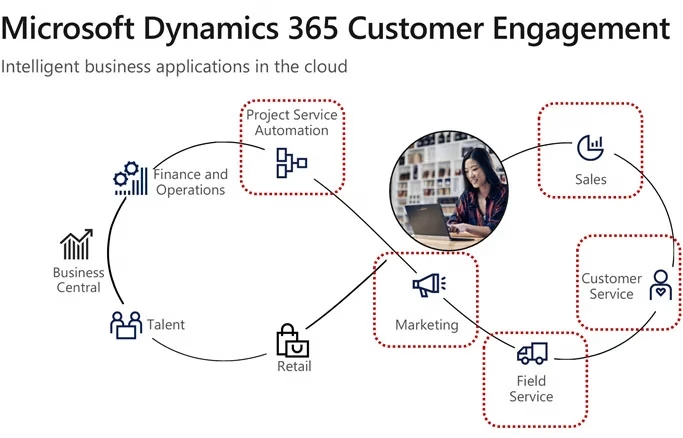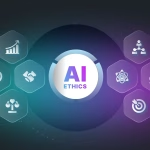The strategic acquisition of Nuance Communications by Microsoft has fundamentally transformed the landscape of customer engagement solutions. This powerful integration combines the robust CRM capabilities of Dynamics 365 with Nuance advanced conversational AI and voice recognition technologies, creating an unprecedented platform for intelligent customer interactions.
🤝 The Strategic Alliance: Transforming Customer Experience
Microsoft’s acquisition of Nuance Communications represents more than a simple business transaction—it signifies a paradigm shift toward AI-driven customer engagement. According to recent updates from Microsoft Learn, Microsoft and Nuance are dedicated to ensuring our products complement each other, accelerate better business outcomes, creating synergies that deliver exceptional value to organizations worldwide.
The integration leverages Nuance decades of expertise in conversational AI, natural language processing, and speech recognition, seamlessly embedding these capabilities within the familiar Dynamics 365 ecosystem. This convergence enables businesses to deliver more personalized, efficient, and intelligent customer experiences across multiple touchpoints.
💡 Key Integration Benefits
The collaboration between Microsoft Dynamics 365 and Nuance delivers several transformative advantages:
- 🎤 Enhanced Voice Capabilities: Advanced speech recognition and natural language understanding
- ⚙️ Intelligent Automation: AI-powered routing and response systems
- 🔄 Seamless Omnichannel Experience: Unified customer interactions across voice, chat, and digital channels
- 📈 Predictive Insights: Advanced analytics for proactive customer service
- ☁️ Scalable Cloud Infrastructure: Enterprise-ready solutions with global reach
📞 Advanced IVR and Voice Channel Integration
One of the most significant developments in this partnership is the integration of Nuance IVR capabilities with Dynamics 365 Customer Service. As detailed in Microsoft Community resources, integrate and enable Nuance IVR in Customer Service as a third-party integration, allowing organizations to leverage sophisticated voice technologies within their existing customer service workflows.
The enhanced IVR system provides several breakthrough features:
🎯 Intelligent Call Routing
The system utilizes natural language processing to understand caller intent, automatically routing inquiries to the most appropriate agents or automated systems. This reduces wait times and improves first-call resolution rates significantly.
🧠 Context-Aware Interactions
By integrating with Dynamics 365 customer data, the IVR system can access complete customer histories, enabling personalized interactions from the moment a call begins. This context awareness extends throughout the entire customer journey.
🌍 Multi-Language Support
Leveraging Nuance global language capabilities, the system supports multiple languages and dialects, making it suitable for international organizations with diverse customer bases.
Customer Engagement Platform Comparison
📊 Traditional vs AI-Powered Customer Engagement
Traditional Customer Service
- ✗ Manual call routing and classification
- ✗ Limited self-service capabilities
- ✗ Reactive problem-solving approach
- ✗ Disconnected channel experiences
- ✗ Basic reporting and analytics
- ✗ High operational costs per interaction
Dynamics 365 + Nuance Integration
- ✅ Intelligent Routing: AI-powered call classification and agent matching
- ✅ Advanced Self-Service: Natural language chatbots and voice assistants
- ✅ Proactive Engagement: Predictive analytics for issue prevention
- ✅ Unified Experience: Seamless transitions across all channels
- ✅ Real-Time Insights: Advanced analytics and performance monitoring
- ✅ Cost Optimization: Reduced operational overhead through automation
🤖 Copilot Integration and Generative AI
Copilot and Nuance technology will power a more comprehensive offering to meet evolving expectations, representing the next evolution in customer service technology. The integration of Microsoft Copilot with Nuance conversational AI creates unprecedented opportunities for intelligent customer engagement.
🧬 Generative AI Capabilities
The platform leverages generative AI to enhance various aspects of customer interaction:
- 💬 Dynamic Response Generation: Creates contextually appropriate responses based on customer history and current inquiry
- 🌐 Real-Time Translation: Enables seamless communication across language barriers
- 😊 Sentiment Analysis: Monitors customer emotional state to adjust interaction strategies
- 🎯 Predictive Recommendations: Suggests products or solutions based on customer patterns
👥 Agent Empowerment Tools
Copilot integration provides customer service agents with powerful AI-assisted capabilities:
- 💡 Intelligent Suggestions: Real-time recommendations for responses and actions
- 📚 Knowledge Base Integration: Instant access to relevant documentation and procedures
- 📝 Case Summarization: Automatic generation of interaction summaries
- ⭐ Next Best Action: AI-driven recommendations for follow-up activities
🏢 Enhanced Contact Center Operations
The integration transforms traditional contact centers into intelligent customer engagement hubs. According to Nuance Enterprise documentation, enhanced IVR features and performance integrating Nuance voice capabilities into the voice channel in Dynamics 365 Contact Center enable organizations to deliver superior customer experiences while optimizing operational efficiency.
🤖 Autonomous Agent Capabilities
Recent developments introduce autonomous agents that can handle complex customer interactions without human intervention:
- ⬆️ Intelligent Escalation: Automatic transfer to human agents when conversations exceed AI capabilities
- 🔧 Complex Query Resolution: Advanced reasoning capabilities for multi-step problem solving
- 👤 Personalized Interactions: Tailored responses based on individual customer preferences
- 📊 Continuous Learning: Improvement through interaction analysis and feedback loops
📈 Performance Optimization Features
The platform includes comprehensive tools for monitoring and optimizing contact center performance:
- 📊 Real-Time Dashboard: Live monitoring of key performance indicators
- ⭐ Quality Scoring: Automated evaluation of interaction quality
- 🎓 Agent Coaching: AI-powered suggestions for performance improvement
- 👥 Workforce Management: Intelligent scheduling and resource allocation
🚀 Implementation Strategies and Best Practices
📋 Phase-Based Deployment Approach
Organizations should consider a structured implementation approach:
Phase 1: Foundation Setup 🏗️
- Core Dynamics 365 Customer Service configuration
- Basic Nuance IVR integration
- Agent training and onboarding
- Initial performance baseline establishment
Phase 2: Advanced Features ⚡
- Copilot integration and customization
- Advanced analytics implementation
- Omnichannel experience optimization
- Custom workflow development
Phase 3: Innovation and Scaling 🌟
- Autonomous agent deployment
- Predictive analytics utilization
- Multi-language support activation
- Third-party system integrations
Change Management Considerations
Successful implementation requires careful attention to organizational change management:
- Stakeholder Alignment: Ensuring leadership commitment and resource allocation
- Agent Training Programs: Comprehensive education on new AI-powered tools
- Customer Communication: Transparent information about service improvements
- Continuous Feedback: Regular assessment and optimization based on user experience
Industry Applications and Use Cases
Healthcare Sector
The integration proves particularly valuable in healthcare environments, where nuance communications expertise in medical documentation combines with Dynamics 365’s patient management capabilities to create comprehensive healthcare engagement solutions.
Financial Services
Banking and financial institutions leverage the platform for secure voice authentication, intelligent call routing, and personalized financial guidance, while maintaining strict compliance requirements.
Retail and E-commerce
Retailers utilize the integrated platform to provide personalized shopping assistance, order tracking, and proactive customer service based on purchase history and preferences.
Technology and Telecommunications
Tech companies benefit from the platform’s ability to handle complex technical inquiries, provide multi-tier support escalation, and deliver consistent service across global markets.
Future Roadmap and Innovation Pipeline
Emerging Technologies Integration
The roadmap includes integration with emerging technologies:
- Augmented Reality Support: Visual assistance capabilities for complex troubleshooting
- Internet of Things Integration: Proactive service based on device telemetry
- Blockchain Authentication: Enhanced security for sensitive customer interactions
- Quantum Computing Applications: Advanced pattern recognition for customer behavior analysis
Enhanced AI Capabilities
Future developments focus on expanding AI sophistication:
- Emotional Intelligence: Advanced emotion recognition and appropriate response generation
- Contextual Memory: Long-term customer relationship understanding across multiple interactions
- Predictive Engagement: Proactive outreach based on customer lifecycle stage
- Hyper-Personalization: Individual-specific interaction optimization
Measuring Success and ROI
Key Performance Indicators
Organizations typically measure success through several critical metrics:
Customer Satisfaction Metrics
- Net Promoter Score (NPS) improvements of 15-25%
- Customer satisfaction ratings increase of 20-30%
- First-call resolution rates improvement of 35-40%
Operational Efficiency Gains
- Average handle time reduction of 25-35%
- Agent productivity increase of 30-45%
- Operational cost reduction of 20-30%
Business Impact Measurements
- Revenue per customer increase of 15-20%
- Customer retention rate improvement of 10-15%
- Cross-selling opportunity identification increase of 40-50%
Return on Investment Analysis
The integrated platform typically delivers measurable ROI within 12-18 months through:
- Reduced staffing requirements for routine inquiries
- Increased customer lifetime value through improved experiences
- Enhanced operational efficiency across all customer touchpoints
- Improved competitive positioning in the marketplace
Security and Compliance Framework
Data Protection Standards
The platform maintains enterprise-grade security standards:
- End-to-End Encryption: All customer data transmission and storage protection
- Role-Based Access Control: Granular permissions for different user types
- Audit Trail Maintenance: Comprehensive logging for compliance requirements
- Regular Security Assessments: Ongoing vulnerability testing and remediation
Regulatory Compliance
The solution supports various industry compliance requirements:
- GDPR Compliance: European data protection regulation adherence
- HIPAA Standards: Healthcare data protection for medical organizations
- SOX Requirements: Financial reporting compliance for public companies
- ISO Certifications: International quality and security standard compliance


